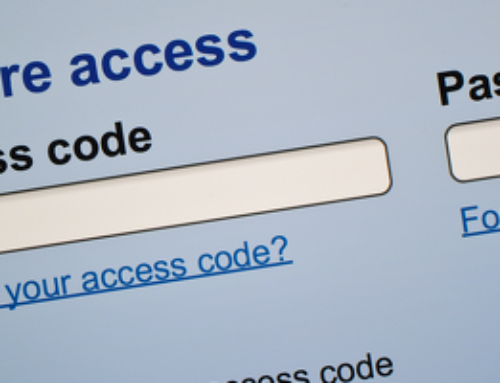Powerful. Always right. Intimidating.
These are some of the descriptions used to describe our nation’s tax collection agency, the IRS. But believe it or not, the IRS is wrong more often than you think.
In this month’s newsletter, read about several recent tax court cases, including one where the IRS was stopped by a judge from issuing an additional $420,000 in taxes and $84,000 in penalties.
Also find out why a letter you may receive from the IRS doesn’t always have accurate information, along with some tips on how to respond.
In addition, there are 5 great money ideas and ways you can protect your personal information from being collected and used by companies.
As always, please pass this newsletter to anyone who may find it valuable and call if you have any questions or concerns.
Upcoming dates
- October 16
- Filing deadline for extended 2022 individual and C corporation tax returns
- October 31
- Halloween
In this issue:
-
Tax Court Corner – Three Cases, Three Great Tips
-
The IRS is NOT Always RightThink twice about automatically paying the amount due on a notice
-
5 Great Money Ideas
-
Your Online Identity is Not Your Own!Here’s how companies use information about you and what you can do to protect it
Tax Court Corner – Three Cases, Three Great Tips
Here’s a roundup of several recent tax court cases and what they mean for you.
Blogging for Taxes
(Thomas v. Commissioner of IRS, 160 T.C. No. 4)
The innocent spouse relief rule allows one spouse to avoid paying taxes caused by the other spouse due to their actions on a joint return. The spouse seeking relief can only discharge this tax liability if they had no prior knowledge of the error, and if it relates solely to their spouse’s income from employment or self-employment.
Facts: Sydney Thomas and her husband did not pay the full tax liability shown on their 2012, 2013, and 2014 tax returns. Following her husband’s death, Ms. Thomas sought to discharge the remaining tax liability using the innocent spouse relief rule.
The IRS argued that the innocent spouse relief rule didn’t apply, using as evidence posts from Ms. Thomas’s personal blog that contained information about Ms. Thomas’s assets, lifestyle, business, and her relationship with her husband. Ms. Thomas countered that these posts were inadmissible. The tax court agreed with the IRS and allowed the posts to serve as evidence.
Tax Tip: Be aware of what you post online. Remember that the IRS can use your social media posts as evidence against you.
Keep Those Receipts
(Craddock v. Comm’r, T.C. Summary Opin. 2023-4)
You can deduct business expenses if they are ordinary and necessary for the regular operation of your business. You must also, however, have proper evidence to support these expenses.
Facts: Matthew and Chasta Craddock filed a joint 2018 Form 1040 tax return, reporting $1,000 of income and a loss of $33,104 from Mr. Craddock’s business. Included in the business loss were car and truck expenses, along with other expenses.
After selecting the Craddock’s 1040 return for audit, the IRS subsequently disallowed all business expenses. All business miles were disallowed because Mr. Craddock’s mileage log for his truck did not break down personal miles vs. business miles. The IRS, supported by the court, also disallowed all other business expenses because Mr. Craddock could not produce proper documentation.
Tax Tip: It’s not enough to record your business expenses. You must also have appropriate substantiation as defined by the IRS. Pay attention to your recordkeeping or hire someone to help so you can defend your business expenses in the event of an IRS audit.
What’s Your Hobby?
(Wondries v. Comm’r, T.C. Memo. 2023-5)
The IRS requires that you have a profit motive if you want to deduct business expenses on your tax return. If the IRS believes that you don’t have a genuine profit motive, it may reclassify your business as a hobby and disallow certain expenses in the future.
Facts: Paul and Patricia Wondries purchased a 1,100-acre ranch in California in 2004. While Paul had previously owned many successful businesses, this was the first foray into ranching for both Paul and Patricia.
In 2015, 2016 & 2017, the Wondries reported ranch losses of $473,901, $223,095, and $229,124, respectively, on their individual tax returns. Following an audit, the IRS assessed an additional $421,503 in taxes and $84,301 in penalties, claiming that the Wondries were not operating the ranch with a profit motive.
The tax court disagreed with the IRS, citing a full-time foreman the Wondries hired to run the ranch, and an official accounting and payroll system that was used to record transactions. So while never realizing a profit over 13 years, the tax court concluded that the Wondries did, indeed, operate the ranch with a profit motive.
Tax Tip: If you are trying to start and grow a business, consider creating a business plan that shows which year you anticipate first turning a profit. Also consider asking for help so you understand the specific details of what the IRS is looking for when determining whether you have a true profit motive.
The IRS is NOT Always Right
Think twice about automatically paying the amount due on a notice
Here are several quotes from actual IRS correspondence that serves as evidence that our national tax collection agency is not always right:
- Thank you for your correspondence. We currently do not have a copy of the correspondence we sent to you regarding your child’s tax return.
- Our records show we received a 1040X…for the tax year listed above. We’re sorry but we cannot find it.
- Our records show you owe a balance due of $0.00. If we do not receive it within 30 days, appropriate collection steps will be taken.
- Payment is due on your account. Please submit payments on or before June 31 to avoid late payment penalties and interest.
It’s pretty tough to pay a balance due of $0 on June 31st when June only has 30 days. The message should be clear. If you receive a notice from the IRS, do not automatically assume it is correct and submit payment to make it go away. Here are some suggestions for how to handle a letter you may receive from the IRS or other taxing authority:
- Stay calm. This is easier said than done, but remember the IRS sends out millions of notices each year. The vast majority of them correct simple oversights or common filing errors.
- Open the envelope. You would be surprised at how often clients are so stressed by receiving a letter from the IRS that they cannot bear to open the envelope. If you fall into this category try to remember that the first step in making the problem go away is to open the correspondence.
- Carefully review. Review the letter. Try to understand exactly what the IRS thinks needs to be changed and determine whether or not you agree with their findings. Unfortunately, the IRS rarely sends correspondence to correct an oversight in your favor, but it sometimes happens.
- Respond timely. The correspondence received should be very clear about what action the IRS believes you should take and within what time frame. Delays in responses could generate penalties and additional interest payments.
- Get help. Getting assistance from someone who deals with this all the time makes the process go much smoother.
- Correct the IRS error. Once the problem is understood, a clearly written response with copies of documentation will cure most of these IRS correspondence errors. Often the error is due to the inability of the IRS computers to conduct a simple reporting match. Pointing the information out on your tax return might be all it takes to solve the problem.
- Certified mail is your friend. Any responses to the IRS should be sent via certified mail or other means with proof of delivery. This will provide evidence of your timely correspondence. Lost mail can lead to delays, penalties, and additional interest on your tax bill.
- Don’t assume it will go away. Until a definitive confirmation that the problem has been resolved is received, assume the IRS still thinks you owe the money. If no correspondence confirming the correction is received, a written follow-up will be required.
Receiving a letter from the IRS is never fun. Please call if you have questions or need assistance.
5 Great Money Ideas
Here are 5 great money ideas to help you get ahead or move into a better financial position.
- Make savings automatic. Take steps to make your savings happen automatically. Setting up automatic transfers for a certain day of the month or payday can help you shore up regular savings before the money gets spent elsewhere. Fortunately, most banks make it easy to set up automatic transfers for a day that works for you.
- Pay down debt. Data from the Federal Reserve shows the average interest rate on credit card accounts was 22.16% in May 2023. At that rate, paying down $10,000 in debt with a monthly payment of $200 would take 134 months and cost $16,654 in interest alone. If you have high interest debt, consider paying it down as fast as you can.
- Upgrade your savings accounts. While interest rates on loans and other debt are sky high, higher rates give you the chance to earn more on your savings. In fact, many of the best certificates of deposit (CDs) and high-yield savings accounts are offering yields of more than 5.00% right now with reasonable minimum balance requirements. But read the fine print – there may be hidden fees lurking at some banks.
- Boost retirement contributions. Take advantage of time and compound interest right now by increasing your contributions to a 401(k), traditional IRA or a Roth IRA. In 2023 you can contribute up to $22,500 in a 401(k) ($30,000 if 50 or older), and up to $6,500 in an IRA ($7,500 if 50 or older).
- Create and use a monthly budget. Finally, consider writing up a monthly budget or spending plan that ensures each dollar you earn is allocated to a specific goal or category. From there, track your spending throughout the month to see how your actual purchases and bills align with the plan you’ve created. Make tweaks to your budget accordingly and look for opportunities to cut spending in categories you have some control over, like dining and entertainment.
These great money tips can provide a financial boost to you and your family, regardless of the economy’s ups and downs.
Your Online Identity is Not Your Own!
Here’s how companies use information about you and what you can do to protect it
One of the most valuable things you own is YOU.
Your identity and related information includes the basics – where you live, your age, and your gender. But it also includes your interests, who you know, and what you buy.
And while some companies are on record saying they don’t sell collected information, your data can still be used to help advertisers and third parties push targeted information in your direction.
So, do you know who has data about you? Here’s the life cycle of your personal data and what to do to protect it.
It gets collected. Think about the organizations that legally collect information about your identity – your employer, government entities, insurance companies, banks, credit reporting agencies, and non-profit organizations. And then add those companies you give your identity to freely – like Google, Facebook, LinkedIn, X, and any other website or social media platform you visit.
It gets stored. Once your identity gets collected, it then needs to be stored somewhere. Storage is most often on servers or locally on a computer or mobile device. This is one of the core concerns with Tik-Tok, a Chinese-originated short video service. The concern is that a foreign entity will have stored U.S. citizen’s interests and behaviors that can help identify potential targets that can be manipulated.
It gets analyzed. Once information related to your identity and interests are collected, it is analyzed. While many companies now say they don’t sell your information to other companies, your data is still being monetized. Your viewing behavior can also be actively manipulated by the sites you view. So if you read articles about cats, you are going to get a lot more articles about cats and get ads that relate to cat-lover behavior. This is often so subtle, you do not realize it is happening.
It gets accessed. If your information is considered a public record, anybody can see it. Business licenses, property tax records and real estate ownership are just a few examples of personal information that anyone can access.
It gets stolen. Identity thieves are always looking for ways to access your information. Thieves either hack one of the organizations that collects your confidential information or find a way to trick you into giving them your information, with techniques such as phishing emails.
What you can do
- Opt-out of providing personal information. The best place to start with protecting your identity is knowing who has access to it and asking if they really need it. Consider opting out of providing information if possible. This includes using private browser settings when on the internet.
- Be vigilant with the data you possess. While you can’t control how secure an insurance company’s servers are, you can control how secure you handle the information and documents you possess. Be on the lookout for phishing emails, verify requests for your information and don’t forget about getting rid of documents the old-fashioned way with a shredder.
- Deliberately monetize YOUR identity. If companies can monetize your identity, then so can you! Stop giving away your identity without a thought. Consider how these tech companies are using your identity, then see if you can think of several ideas about how YOU can make money from your own personal experiences instead of these companies.
As always, should you have any questions or concerns regarding your tax situation please feel free to call.


 Here’s a roundup of several recent tax court cases and what they mean for you.
Here’s a roundup of several recent tax court cases and what they mean for you. Thank you for your correspondence. We currently do not have a copy of the correspondence we sent to you regarding your child’s tax return.
Thank you for your correspondence. We currently do not have a copy of the correspondence we sent to you regarding your child’s tax return. Make savings automatic. Take steps to make your savings happen automatically. Setting up automatic transfers for a certain day of the month or payday can help you shore up regular savings before the money gets spent elsewhere. Fortunately, most banks make it easy to set up automatic transfers for a day that works for you.
Make savings automatic. Take steps to make your savings happen automatically. Setting up automatic transfers for a certain day of the month or payday can help you shore up regular savings before the money gets spent elsewhere. Fortunately, most banks make it easy to set up automatic transfers for a day that works for you. One of the most valuable things you own is YOU.
One of the most valuable things you own is YOU.



